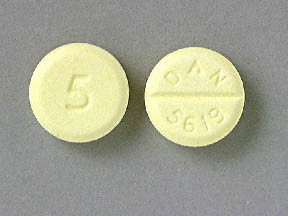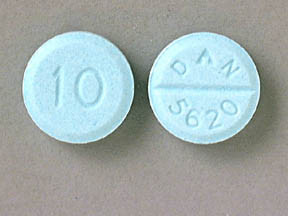DIAZEPAM - ORAL
PHONETIC PRONUNCIATION: (dye-AZ-e-pam)
COMMON BRAND NAME(S): Valium
GENERIC NAME(S): diazepam
Uses
USES: Diazepam is used to treat anxiety, alcohol withdrawal, and seizures. It is also used to relieve muscle spasms and to provide sedation before medical procedures. This medication works by calming the brain and nerves. Diazepam belongs to a class of drugs known as benzodiazepines.
How to use DIAZEPAM - ORAL
HOW TO USE: Read the Medication Guide provided by your pharmacist before you start taking diazepam and each time you get a refill. If you have any questions, ask your doctor or pharmacist. Take this medication by mouth with or without food as directed by your doctor. If you are using the liquid form of this medication, carefully measure the dose using a special measuring device/spoon. Do not use a household spoon because you may not get the correct dose. If you are using the concentrated solution, use the medicine dropper provided and mix the measured dose with a small amount of liquid or soft food (such as applesauce, pudding). Take all of the mixture right away. Do not store the mixture for later use. The dosage is based on your medical condition, age, and response to treatment. Do not increase your dose or use this drug more often or for longer than prescribed. Your condition will not improve any faster, and your risk of side effects will increase. Properly stop the medication when so directed. If you suddenly stop using this medication, you may have withdrawal symptoms (such as shaking, abdominal/muscle cramps, vomiting, sweating, anxiety, restlessness, seizures). To help prevent withdrawal, your doctor may lower your dose slowly. Withdrawal is more likely if you have used diazepam for a long time or in high doses. Tell your doctor or pharmacist right away if you have withdrawal. When this medication is used for a long time, it may not work as well. Talk with your doctor if this medication stops working well. Though it helps many people, this medication may sometimes cause addiction. This risk may be higher if you have a substance use disorder (such as overuse of or addiction to drugs/alcohol). Take this medication exactly as prescribed to lower the risk of addiction. Ask your doctor or pharmacist for more details. Avoid eating grapefruit or drinking grapefruit juice while using this medication unless your doctor or pharmacist says you may do so safely. Grapefruit can increase the chance of side effects with this medicine. Ask your doctor or pharmacist for more details. If directed by your doctor, take this medication regularly to get the most benefit from it. To help you remember, take it at the same time(s) each day. Tell your doctor if your condition lasts or gets worse.
Side Effects
Precautions
Interactions
Overdose
Images
Reviews
Faq for DIAZEPAM - ORAL
Diazepam is a medication that belongs to the benzodiazepine class of drugs. It is commonly prescribed to treat anxiety disorders, muscle spasms, seizures, and alcohol withdrawal symptoms.
Diazepam works by enhancing the effects of a naturally occurring chemical in the body called gamma-aminobutyric acid (GABA). GABA is responsible for reducing excessive brain activity and promoting feelings of calmness and relaxation.
Common side effects of Diazepam - Oral may include drowsiness, dizziness, fatigue, blurred vision, and impaired coordination. It is important to avoid operating machinery or driving until you know how Diazepam affects you.
Yes, Diazepam can be habit-forming if taken for a prolonged period or in higher doses than prescribed. It is essential to follow the prescribed dosage and duration to minimize the risk of addiction.
Diazepam usually starts working within 30 to 60 minutes after ingestion. However, the exact onset time may vary depending on factors such as individual metabolism and the presence of food in the stomach.
Diazepam is generally not recommended during pregnancy, especially during the first trimester. It may pose a risk to the developing fetus. It is crucial to consult with a healthcare provider before using Diazepam if you are pregnant or planning to become pregnant.
It is generally not recommended to consume alcohol while taking Diazepam. Both Diazepam and alcohol can have CNS depressant effects, leading to increased drowsiness, dizziness, and impaired judgment. Combining the two can be dangerous and may result in severe side effects.
If you forget to take a dose of Diazepam, take it as soon as you remember. However, if it is almost time for your next scheduled dose, skip the missed dose and continue with your regular dosing schedule. Do not double the dose to catch up.
Yes, Diazepam can interact with various medications, including certain antidepressants, anticonvulsants, opioids, and sedatives. It is crucial to inform your healthcare provider about all the medications, supplements, and herbal products you are taking to avoid potential interactions.
Warning
WARNING: Taking diazepam with opioid medications (such as codeine, hydrocodone) may increase your risk of very serious side effects, including death. To lower your risk, your doctor should have you take the smallest dose of diazepam that works, and take it for the shortest possible time. Get medical help right away if any of these very serious side effects occur: slow/shallow breathing, unusual lightheadedness, severe drowsiness/dizziness, difficulty waking up.
Disclaimer
IMPORTANT: HOW TO USE THIS INFORMATION: This is a summary and does NOT have all possible information about this product. This information does not assure that this product is safe, effective, or appropriate for you. This information is not individual medical advice and does not substitute for the advice of your health care professional. Always ask your health care professional for complete information about this product and your specific health needs.


No Reviews Yet